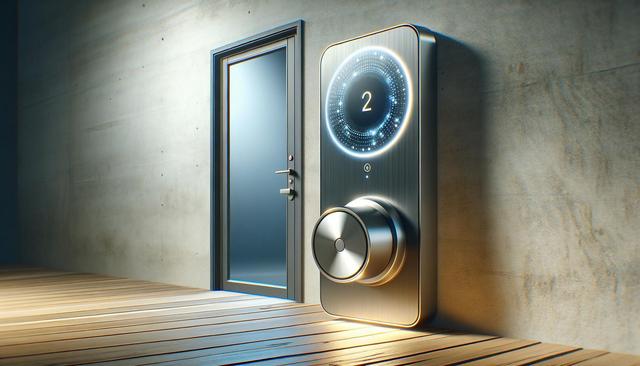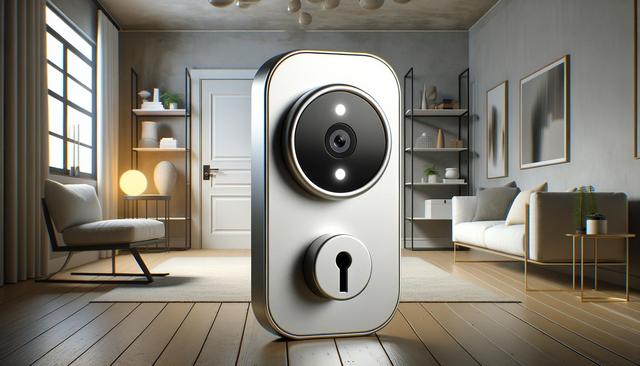What Is a Smart Door Lock?
Smart door locks are electronic locking systems that allow users to secure and unlock their doors using digital methods rather than traditional keys. They often operate via smartphone apps, keypads, or biometric verification, offering a more modern approach to home security. These devices are part of the broader smart home ecosystem and can be integrated with other home automation features to enhance overall convenience and safety.
Most smart locks connect through Wi-Fi, Bluetooth, or Z-Wave technology, enabling remote access and monitoring. This means homeowners can lock or unlock doors from anywhere using their mobile devices. Some models also support voice commands through integration with virtual assistants, adding another layer of ease for users who prefer hands-free control.
This shift away from physical keys offers several advantages, including the elimination of lost or duplicated keys, better tracking of who enters the home, and customizable access permissions. Whether you’re a frequent traveler, a busy parent, or simply security-conscious, a smart door lock offers adaptability to suit a wide range of lifestyles.
Key Features to Consider
When choosing a smart door lock, understanding the available features is essential to making a well-informed decision. While models may vary, some standard functionalities distinguish high-performing options from the rest. Here are several key features to look for:
- Remote Access: Control your lock from anywhere using a mobile app.
- Auto-Locking: Automatically locks your door after a set time or when you leave your home.
- Custom User Codes: Create temporary or permanent codes for family members, guests, or service providers.
- Activity Logs: Monitor who enters and exits your home with time-stamped logs.
- Tamper Alerts: Get notified in case of forced entry attempts or unauthorized access.
Additional features such as biometric fingerprint scanning or integration with smart doorbells and security cameras can further elevate the lock’s functionality. It’s also wise to consider battery life, installation ease, and compatibility with your existing door hardware before making a purchase.
Installation and Compatibility
Smart door locks are generally designed to be compatible with standard deadbolts, making installation relatively straightforward for most homeowners. Many models come with do-it-yourself kits that include step-by-step instructions. However, some users may prefer professional installation, especially when integrating with a broader smart home system.
Before purchasing a smart lock, it’s important to check compatibility with your door’s dimensions and material. Additionally, consider whether the lock requires a specific type of smartphone or operating system. Some locks work exclusively with certain apps, so knowing your device requirements in advance can prevent future inconvenience.
Integration with other smart home devices is another factor to consider. Many smart locks work seamlessly with systems such as smart lights, cameras, and home hubs. This allows for scenarios like automatically turning on lights when the door is unlocked or triggering an alarm when unauthorized access is detected.
Security and Privacy Considerations
While smart door locks offer added convenience, security and privacy remain top concerns. Manufacturers implement various layers of encryption and authentication to protect user data and prevent unauthorized access. It’s crucial to choose a lock from a reputable manufacturer with a strong track record of software updates and security patches.
To enhance your digital security, consider taking the following precautions:
- Use strong, unique passwords for your smart lock app.
- Enable two-factor authentication if available.
- Regularly update the lock’s firmware to patch vulnerabilities.
- Limit access to trusted users and monitor usage logs frequently.
It’s also important to understand the data policies of your smart lock provider. Knowing what data is collected, how it’s stored, and whether it’s shared with third parties can help you make informed decisions about your home’s privacy.
Benefits for Different Users
Smart door locks cater to a wide range of users, each benefiting differently from their features. For families, the ability to assign unique access codes to each member ensures that no one is ever locked out. Parents can also monitor when children arrive home from school or restrict access during certain hours.
For renters or those managing short-term rentals, smart locks provide the flexibility to grant temporary access to guests without the need for physical key exchanges. This is particularly useful for vacation properties, where turnover is frequent, and efficiency is key.
Professionals who work away from home can benefit from the peace of mind that comes with remote monitoring and control. Whether it’s letting in a pet sitter or receiving alerts about potential security issues, smart locks help maintain oversight no matter where you are.
Additionally, individuals with limited mobility can appreciate the convenience of unlocking doors without needing to physically turn a key. Voice control or app-based commands can significantly enhance accessibility and independence in such cases.
Conclusion: A Smarter Way to Secure Your Home
Smart door locks offer a compelling combination of security, convenience, and modern functionality that align well with today’s connected lifestyles. Whether you’re looking to simplify key management, increase control over who enters your home, or integrate seamlessly with your smart home system, these devices provide a flexible solution tailored to diverse needs.
As with any technology, thoughtful selection, proper installation, and ongoing maintenance are key to getting the most out of your smart door lock. By understanding your household’s specific requirements and staying informed about security best practices, you can make a confident move toward a more secure and convenient living environment.


